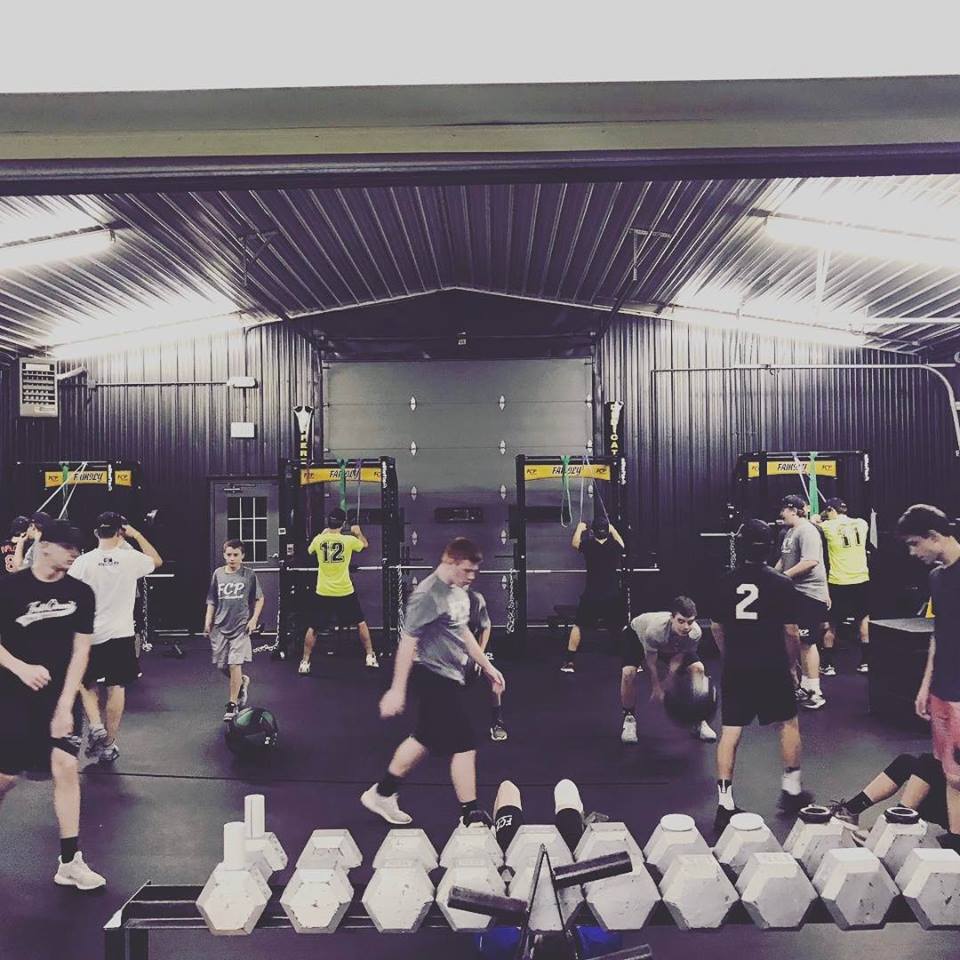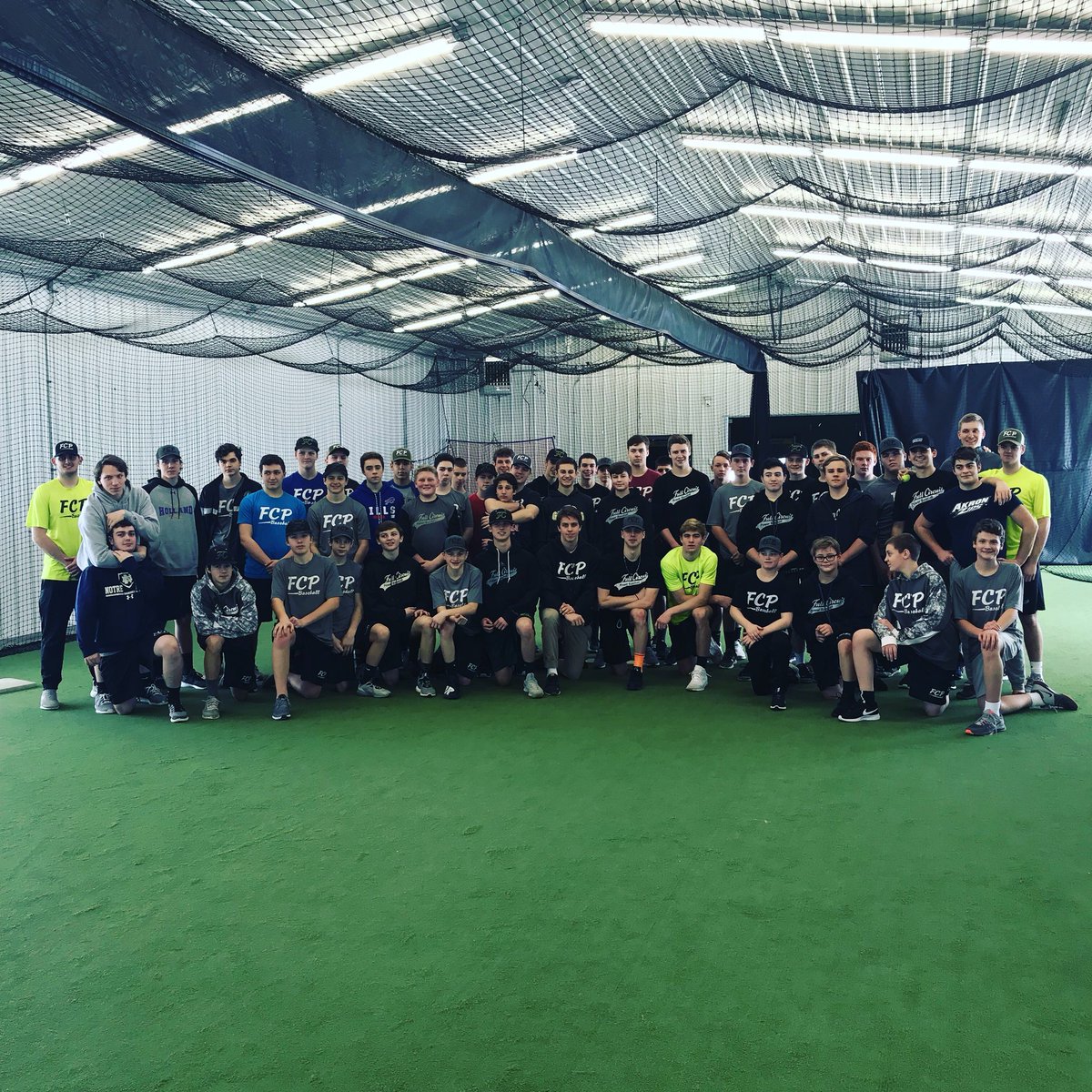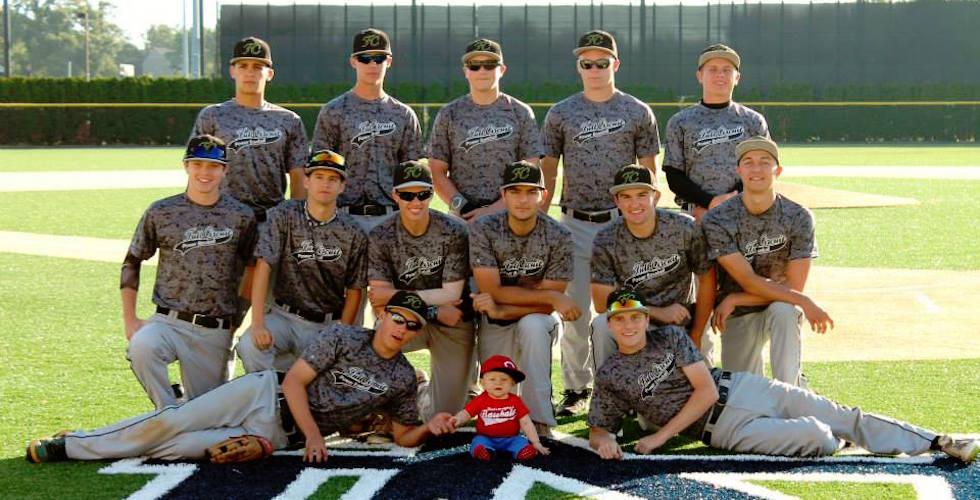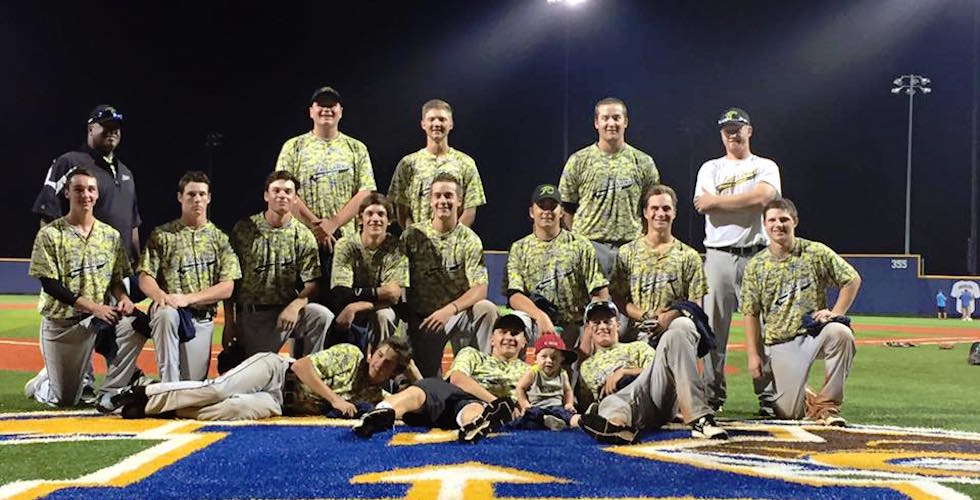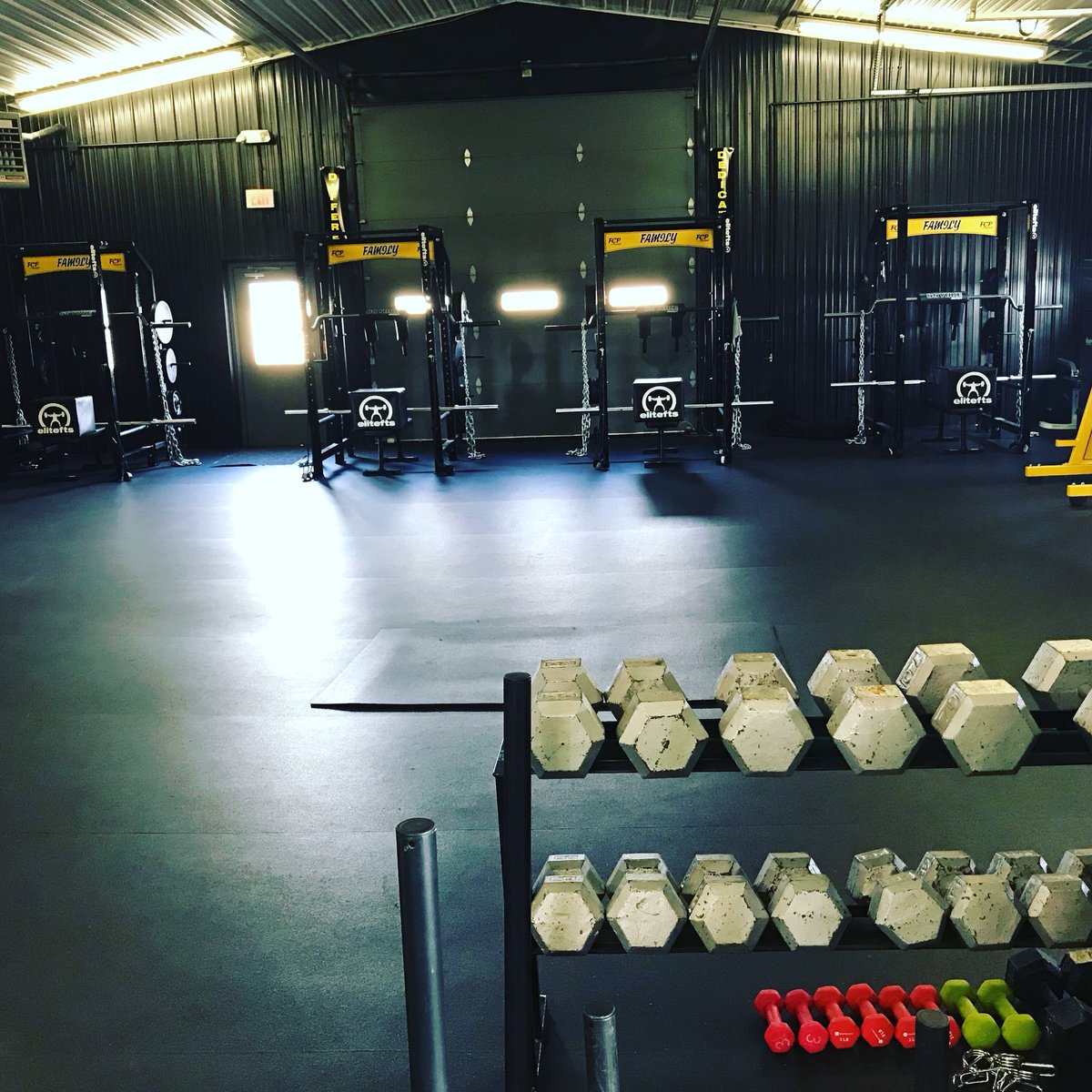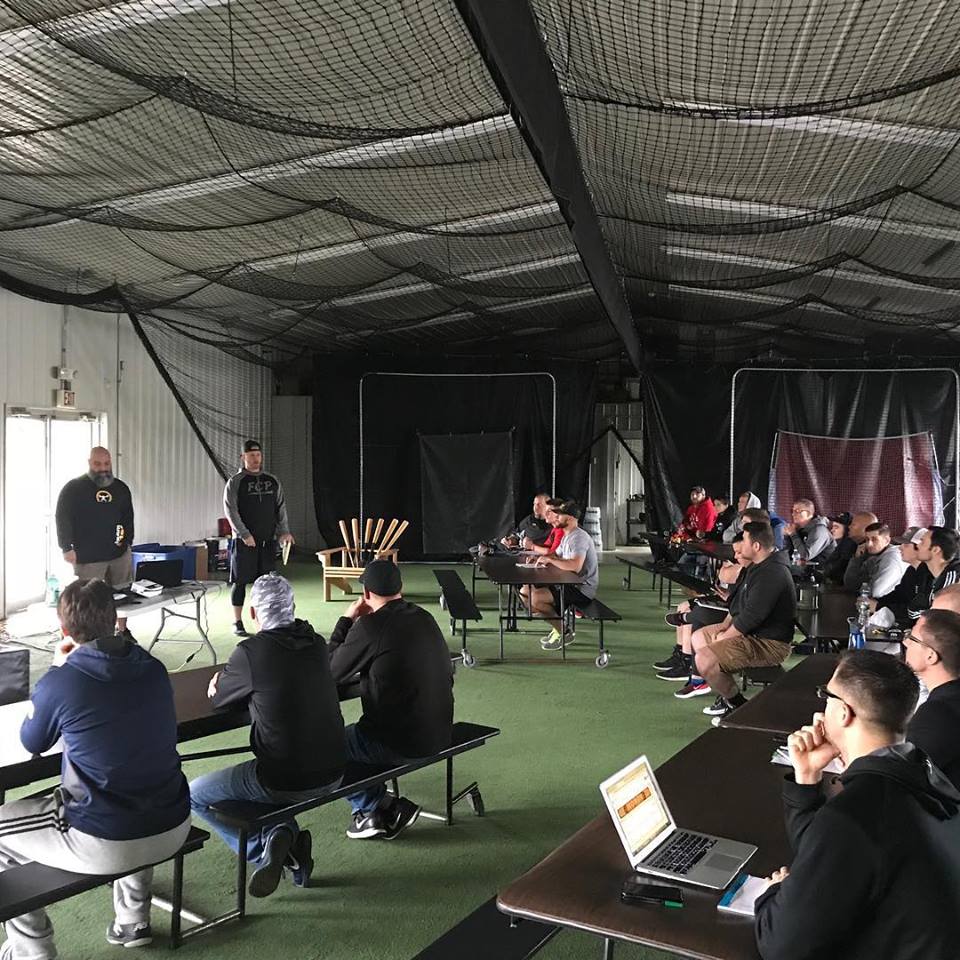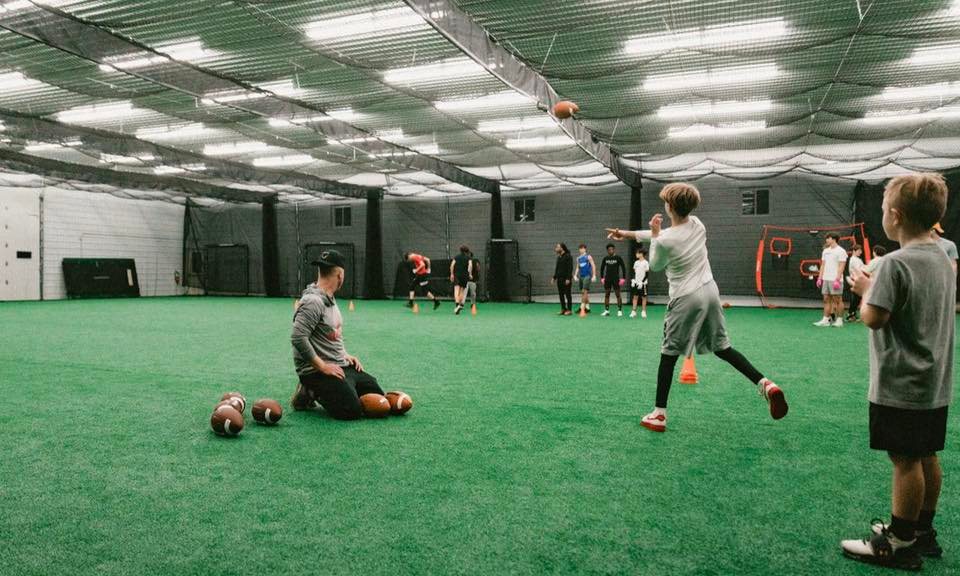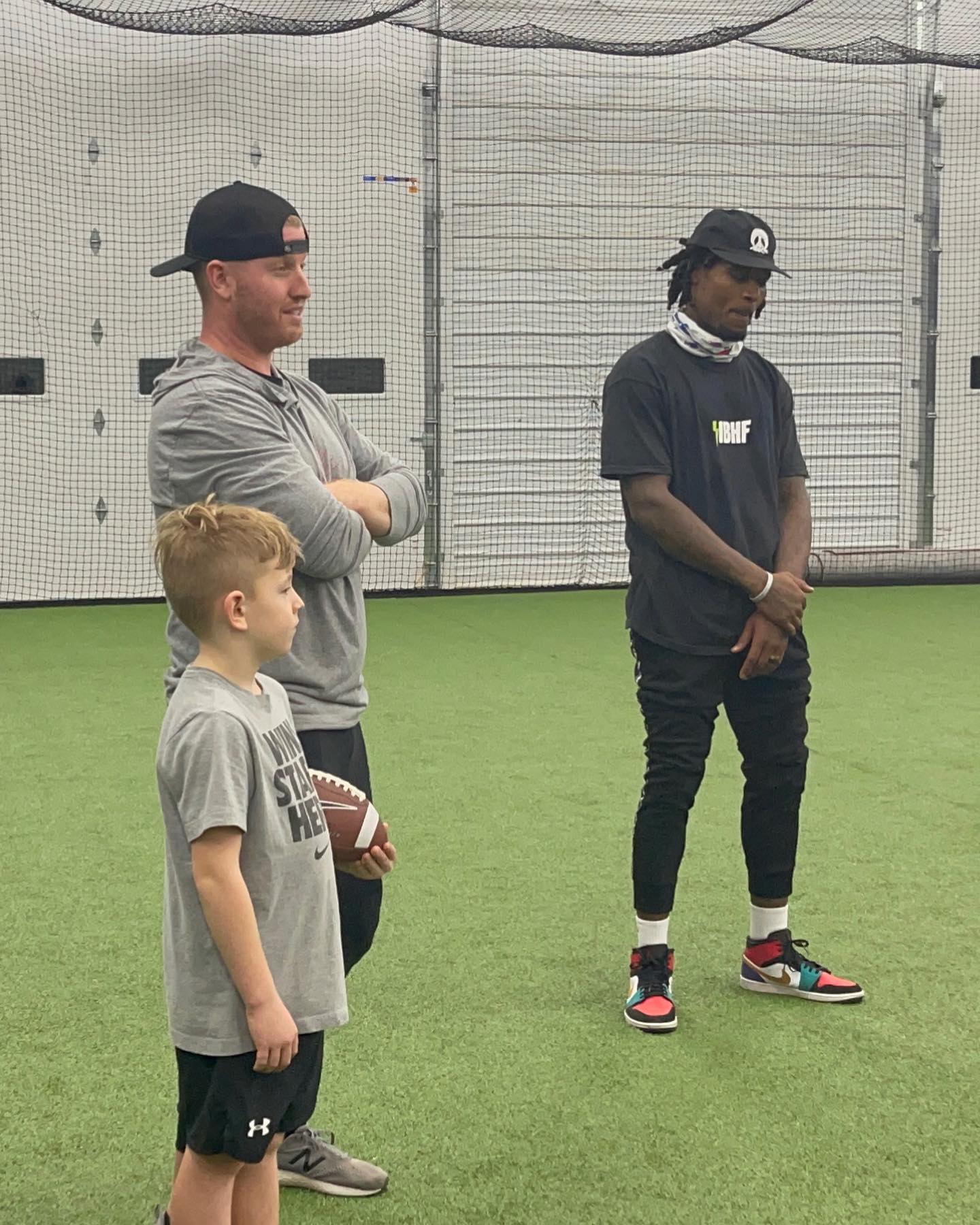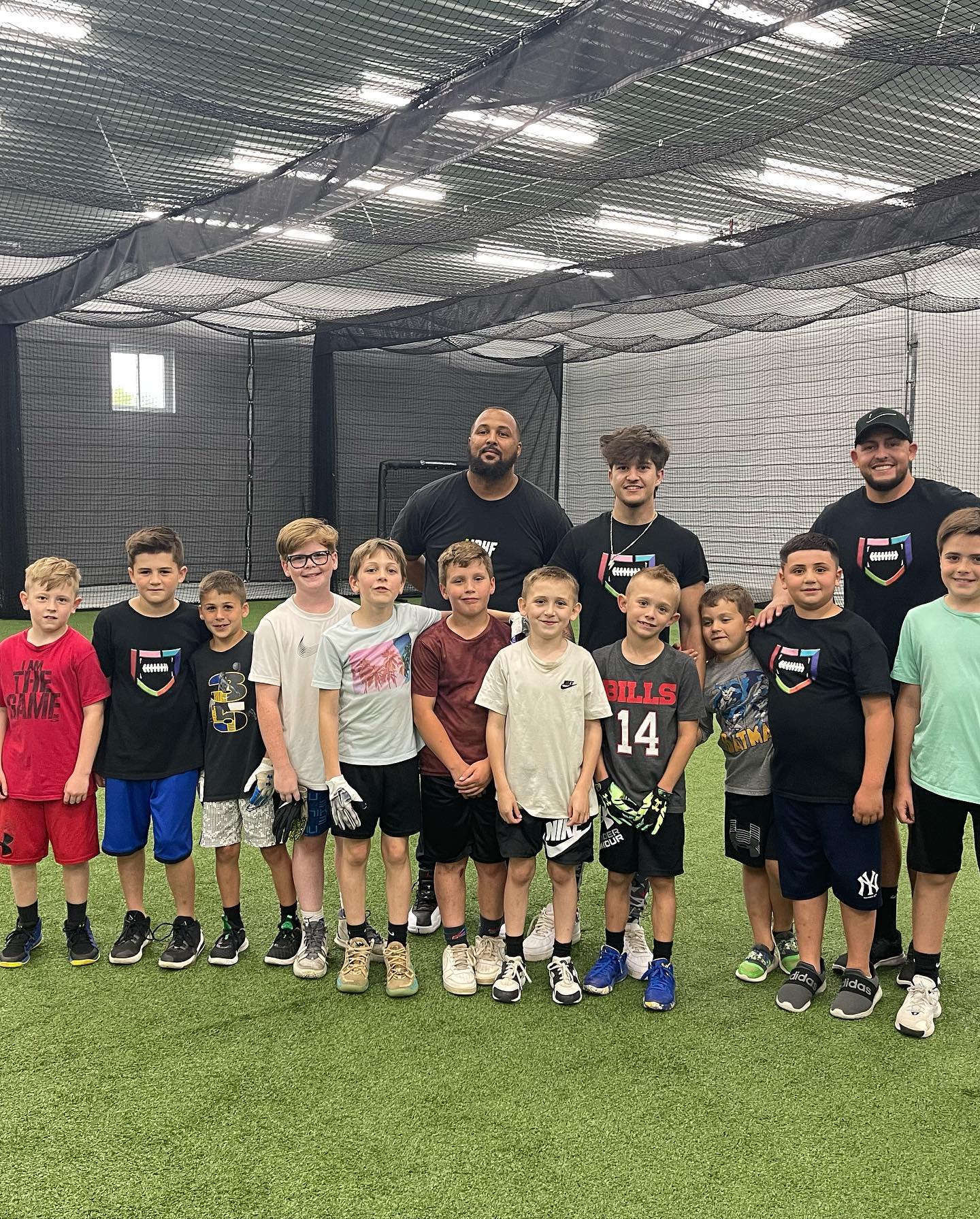Hope what you read below is worth your time, I welcome comments, questions, or debates anytime so please don't hesitate to Email fullcircuitathletics@gmail.com
Pitch Counts: It's a Step In The Right Direction but There's More To Address
Anyone who is involved in the baseball community in New York State is probably aware by now that NYSPHSAA has recently approved a pitch count rule for high school baseball teams in 2017. The rules state the following;
"For varsity players, a pitcher can throw a maximum of 105 pitches in a regular-season game. If he throws between 96 and 105 pitches, he must have four nights of rest before his next appearance on the mound. A pitch count between 66 and 95 means three nights of rest, between 31 and 65 warrants two nights of rest and between 1 and 30 mandates one night. The pitch counts increase for postseason games, to a maximum of 125 pitches."
Let's start by addressing the fact that pitch counts have long been discussed and debated by coaches, players, parents, doctors, trainers, and really anyone else that may have any interest in either protecting arms or winning baseball games. Here's the FCP position on the matter. Within our program, players from 13-18 years old we do not allow pitchers to throw beyond 85 pitches in one outing. Some may say that this is extremely conservative. You're 100% right. When it comes to young players arm safety I will always lean on the extremely conservative end of the spectrum. Here is why...
For years I've watched high school and travel baseball players run out on the field for 100 or more pitches on a regular basis. When a player gets around that 100 pitch mark, more often than not a coach will address him and say "hey how's the arm feeling?" which is usually responded to by the young pitcher with something like, I'm alright, I feel fine, or I've got another inning in me still." The player remains in the game, throws well beyond 100 pitches, rests a few days and goes back out to repeat. At this point the coach has decided that winning this baseball game is more important than this young mans arm. Coaches all need to stop making excuses and start taking action in these cases. News Flash: Teenage boys are filled with testosterone and competitiveness. They will rarely tell you when they have pain or soreness in the arm because they do not want to come out of the game. It's your JOB to take them out of the game regardless what they tell you they feel. As a coach at these ages we should be looking to develop young pitchers in a safe environment and allow them the opportunity to continue playing at a higher level if that is what they seek. In order to do this we have to protect their arms. All too often whether coaches admit it publicly or not, they are worried more about winning a game or tournament than they are the long term effects of overuse. Trust me, I do understand how in the heat of the moment in a game your judgment may get clouded and you think it's not a big deal if it's only once in a while and the kid says he's OK, what the risk right? One way to prevent this is to put a blanket pitch count rule across the board for all pitchers within your league, organization or just on your own individual team, that they all must abide by and take the reigns out of the coaches hands.
Research by the ASMI (which is filled with medical minds much brighter than mine and I'm sure most of us baseball nuts), has shown that the number one cause of arm injuries in pitchers is OVERUSE. Simply put, throwing too many pitchers, too many pitches under stress, and too little rest in between. NYSPHSAA has taken a positive step in the right direction by implementing these rules. Though I commend them on taking action, there are still many holes in this set of rules. Two in particular come to mind. First, age was not addressed. The younger these athletes are the more conservative restrictions need to be put on them. There are many small schools across the state who have to bring up young kids grades 7-9 to play Varsity baseball due to lack of athletes in the school. These kids should be on more stringent counts than an 18 year old high school senior who is physically developed. There is no way a 7-9th grader should be pitching near 100 pitches in a game but with these guidelines they would still be allowed to do so. Second, the pitch count increases for playoff games? Are we to assume that because a playoff game holds more value than that of a regular season game, that we're willing to take a little more risk on the kids arm if it means a better chance at a victory with our Ace on the mound? Again I don't mean to sound condemning to those that passed this pitch count rule because it's a tremendous step in the right direction and I'm ecstatic that the issue is finally being addressed. I think it just needs to be evaluated even further as we move forward. Maybe that is the plan already. Perhaps the state plans to watch how things go this year and then re-structure in the coming years.
Here's my suggestions on what coaches can do to help this cause while also helping their chances at continuing to win games. Instead of coaches being upset that they can't use their stud arm up for a complete game all the time if it's above the given pitch count, develop more arms at a younger age. It's historically been the norm that at many high schools, as long as you have 2 maybe 3 quality pitchers you just relied heavily on them and let them throw until their arms fell off. Now everyone is abiding by the same rules so those coaches that begin to develop more quality arms are going to have the advantage. Not all players have to be high end primary pitchers, but those teams who have a few additional guys who can pound the strike zone are likely going to get the edge. My final suggestion for how to "work around" this new rule set is probably what I should have led with. TEACH PITCHERS TO THROW STRIKES! As coaches, let's all start putting a heavier focus on pounding the strike zone. Now I love velocity more than most. I train it at all levels and we are in a velocity dominant era in the game and I'm perfectly fine with that. However, equally as important is location of the fastball. One constant in baseball is that a well located fastball will always be one of if not the most effective pitches you can throw. So let's stress this with pitchers more at a young age. Instead of worrying about how sharp the 14 year old boys curve ball is experimenting with cutters and splitters at 13 years old emphasize proper mechanics that will lead to attacking the zone with fastballs. In turn your pitch counts will stay down, and your ACE pitcher can stay in the game longer for you to have a better shot at winning.
In conclusion, let's as a baseball community do a better job of putting players health above all else. Wins, trophies, and championships are fantastic but none should ever be worth harming a kids chances at continuing to play this game long term. Work harder to develop young pitchers with a fastball early (future article to come on pitch types and ages they should be thrown) and take a step back and realize it's for the greater good of the game we all love. Protect the kids arms, give them a chance to play longer.
-There is extensive research done now addressing these issues and a lot of great suggestions on how to help protect your young players arms aside from just pitch counts alone. If any coaches, parents, or players ever want to discuss, please feel free to reach out at anytime. fullcircuitathletics@gmail.com
Working Together Not Against & Coaching This Generation
Charlie Karstedt
Right, Wrong, or Just Get Better
First of all Happy New Year to everyone at Full Circuit and all those around the baseball community. 2016 was an exciting year for Full Circuit with a lot of success from our young ball players chasing, and getting closer to their dreams. With the new year comes reflection, re-assessment, and hopefully re-adjusting our lives for the better where we deem necessary. So I thought New Years Resolution time would be a great time to discuss something that we as human beings, and in particular coaches/instructors seem to struggle mightily with. Let me ask a few hypothetical questions; Generally speaking, would you rather be Right or Wrong? (don't overthink it) Odds are the answer is Right. Now do you enjoy being Wrong? (doubtful) Are you embarrassed when you are proven Wrong on a topic where you felt strongly you were Right? (of course we're human) Finally, if you're a coach, instructor, or trainer, would you rather be Right but have your athlete see limited to no gains, or be Wrong and have your athlete see amazing gains? Off the cuff most would say something along the lines of "of course I want to see amazing gains for all my athletes." Unfortunately it's my experience that most coaches are slow to be able to put their ego aside and truly do what's best for their player, 100% of the time. I'll give you a basic example. When I first began doing hitting instruction years ago I used to use phrases such as "foot down early", "get your barrel A to B", "follow through", and surely many more. Over the years however I've learned the swing far more in depth, and have had the opportunity to work with some phenomenal hitters as well as other coaches and instructors. With this experience came changes in my philosophy. I would be doing my players a disservice if I continued to use these ideals, knowing full well that there are better ways. Because I feel so strongly that those 3 phrases I eluded to earlier actually cause more harm than good, I eliminated them from my vocabulary when doing hitting instruction. I've found that there are better more efficient phrases that get through to hitters with much less confusion. I had to be able to admit that what I was teaching was not the best possible instruction I could give. We can use similar stories with pitching instruction and in the weight room as well. As coaches it's hard for us to admit that someone else in our profession may have a better way, and because of this attitude it's a never ending game of tug-of-war arguing who's right and who's wrong, instead of just helping the athletes get better. I tell our players this all the time; Ask coaches questions. Question what we say until you truly understand and agree with what it is we're trying to get across or you'll never truly get the most out of your training. I as a coach will never scold or punish you for voicing that you think I'm wrong. I in fact welcome it and love the idea of being able to brain storm and debate with young athletes, parents, coaches, trainers and anyone else who wants to join in the conversation. If you ask a coach/instructor/trainer or teacher "why" and the answer they give you is because I said so, or a long winded, round about talk avoiding the actual question, you need to question if you're in the right environment for you.
I get players that come through my doors on a weekly basis that have been taught from various coaches and have certainly been taught some good ideas but also some bad. The issue I see all too often however, is that when I see a "flaw" in a swing or pitching mechanics, and I ask why they do this, the response I get is "because that's what Coach so and so told me to do." I always respond with "what is their reason behind it, and do you feel like that's what works best for you?". Usually the young players are confused and unsure as to how to respond because they have in my opinion a misguided perception of how they should "respect their coach". Don't get me wrong, I agree that young men and women have to respect their authority figures. But why is it disrespectful to ask a coach "Why"? Kids are scared to death to question a coach because too many have historically instilled this "because I said so" environment. This environment is one of the biggest limiting factors in youth athletics. As coaches let's try to guide these young easy to mold minds by encouraging original thoughts and experimentation by trial and error, instead of being so quick to train "good little soldiers". Like it or not, this generation of athletes are not going to respond to the "water is for the weak, we only take salt tablets for hydration, drop and give me 20, because I said so Coach.
"Imitation is the sincerest form of flattery"
Over the past couple months I've had a lot of players and parents in particular, ask why I share so much on the Full Circuit social media outlets. They question whether I fear other coaches/trainers copying what we do. My answer to that is pretty simple, Absolutely Not! First off, I hope others see value in what we do and choose to implement it into their own programs as well. Second, It would be awesome if we could open better lines of communication in the baseball community. Finally, If we're doing anything that is worth stealing then we're doing something right. "Good artists borrow, great artists steal"-Pablo Picasso I've certainly never claimed to invent everything we do at Full Circuit. I simply study, ask questions, study some more, and try to find the best that science and training has to offer our athletes and then implement it. I wish there was a better relationship among coaches and trainers in our profession so that we could all help work toward improving baseball in our community. Unfortunately money, ego, and unwillingness to learn, always seem to get in the way of this. I firmly believe that if a coach or trainer is still teaching 100% what they taught 5, 10, or worse 20 years ago, they are doing wrong by their athletes. It's easy for a coach to say I've been doing this for a lot of years you just have to trust me. It's hard for a coach to say you know what, there's been a lot of great advancements in player development, and I'm going to see if there's more out there that we can be doing for you. I'm not saying that certain mechanics have not remained constant, but to think that teaching the same style that was taught 30 years ago is the best way, is just lazy and ignorant. If I'm diagnosed with a deadly disease tomorrow, I don't want treatment methods used 50 years ago to be used on me. I want the Doc who is using the most cutting edge treatment that medicine has to offer today. Wouldn't You?
Final Thoughts: I always promise my players that I will work harder as a coach than they will as a player. Whether I'm able to win this fight or not is a challenge that I welcome. In order to stay true to my word however, I have to constantly be willing to learn and try new things. I spend countless hours studying and experimenting with different ideas on athletes of all ages, in essence trying to prove myself wrong. I teach my athletes to the absolute best of my abilities and knowledge to date, But I hope and pray that in 5 years from now I have even more to offer them. For New Years in 2017 I challenge anyone reading this, to open your mind to new ideas, ask more questions, and be willing to be wrong. This can go far beyond the baseball world. I hope the next generation can offer more than we can today because of their willingness to change.
-Charlie Karstedt
Individual Instruction; Is it worth it? Is it for you? What else could you do?
Charlie Karstedt
Though it may go against what would bring my business increased revenue, I'm going to share my thoughts on individual instruction. Everywhere you look now there are hitting instructors, pitching instructors, all claiming to be Elite, Premier, Professional, Blah Blah Blah. To some extent they could all bring benefit to your young ball player but just how necessary is this? go a little deeper into this topic in hopes to help shed a little light.
I've been heavily involved in instruction, coaching, training, and scouting for the past 7 years. Though I don't have decades of experience under my belt, I have had the opportunity to work with all levels of players in regards to skill sets. I've had 6-9 year old kids come in who can hardly walk and chew gum, high school guys who want to gain 10-mph on their fastball in a winter spending 1, 30 minute session per week, (good luck) and I've had college and professionals who spend 6 days a week on a heavy training/instruction routine with me. What I've learned are some very deep, very sophisticated lessons; First, you get out what you put in! If a kid comes in once a week for 30 minutes with me and I give that kid every ounce of energy and knowledge I can pour out in that time frame, and then for the next 6 days until I see him again he's on his phone, video games, or watching TV for more total hours than he is doing anything that resembles an athletic movement, don't expect any kind of true improvements in this individual as a ball player. Second, private instruction is not for everyone. For some it's a great fit, for others it's not worth their time or money for various reasons. Third, there's a lot that young athletes could be doing to help their own cause but choose not to. I've laid out a few ideas here to think on before signing your son or daughter up for any type of instruction.
- Does your child already have a true passion for the game?
What I mean here is does your young player watch a lot of ball? Does he or she ask to go outside and play catch or hit every time there's some sunshine and dry grass? If so, then maybe seeking some additional professional instruction could be beneficial to add another layer of new knowledge to their game. But again this should not take place of the back yard catch and whiffle ball hacks in the basement. If a young player doesn't have a genuine love of the game, lessons may not be the best idea. Take them to a local ball game, set up some sandlot games with local kids, and let them learn to love the game the way it was meant to be played; on a field, outdoors, with their peers. - Has your childs skill set surpassed what you as a parent are able to provide him or her in regards to instruction?
Keep in mind here you don't have to be Ted Williams or Tony Gwynn to instruct your young ball player on how to (keep your feet in line, stay in an athletic base, keep your eye on the ball, and swing hard.) These are general cues that will go a long way for a majority of youth hitters. Similar can be said for pitching and fielding. Don't sell yourself short as an at home coach. Remember 99% of the time the kid may love and respect the cool new instructor you paid for him to work with but at the end of the day Dad is still his hero whether he admits it or not. Dad is the one that he's going to be looking to for approval after those summer ball games. (article for another time) - Can you afford private instruction?
Nothing is more flattering and concerning to me at the same time then when a good hearted, loving father sets up a $500 package of lessons for his young boy to come work on his game with me but I know the family has been struggling financially. In this case I think the best bet is set up 1 session with a professional and just be up front. You're not in the position to spend too much money on this right now but you'd love to help give your son a better opportunity to improve. I've done this plenty of times with guys and just spent 30-60 minutes evaluating the player and giving some drill ideas and exercises to take home with them. If you're with someone who is up-selling you and convincing you somehow that in order to make gains you have to pay for instruction 2-3 times a week year round, then you may be dealing with a salesman and not a coach. True coaches and trainers are in this profession to help guide athletes through their journey in sports. All in all instruction is great and if you find the right coach to work with that your athlete really hits it off with and money is no issue than absolutely take advantage of what they have to offer and enjoy the process.
On a similar note, I'd like to go on a tangent with something that I'll be covering more in depth at a later date. One of the most overlooked issues in today's youth in regard to sport is the lack of general functional athletic ability. Lets ask ourselves some questions about kids we know today ages 12-18 for arguments sake. How many hours per week do they spend on some sort of electronic device outside of school? (phones, video games, TV, computer social media outlets etc...) How many hours on average do these same kids spend per week outside or in the basement or family room playing or creating games? Do these same kids do any sort of private instruction in sports, play on athletic teams, or do any training classes at a local gym? The answers may vary from person to person but as a whole in our society a majority of young people do not take it upon themselves to do activity unless it is structured and paid for. The days of kids running outside, playing hide and seek, kick the can, climbing trees, sandlot baseball, pickup basketball, and touch football in the yards are dwindling away and it is painful to watch. I hear kids say that they do still do these things but it's rarely anything regular. Now look at this from a physiological standpoint. Athletic training, medicine, and science has never been more advanced than it is today in regards to how to make athletes bigger, faster, stronger right? Then why is it that if I line up 10 random young men, all 12 years old, all current youth ball players, and ask them to do 10 perfect push ups, I'm hard pressed to find 1 or 2 that can do so? I bet if we went back to my grandfather's generation and did the same we'd get drastically different results. This is because when you take away the electronic distractions, young people are forced to stand up and move around, climb things, jump, run hit, kick, throw and so on. That 12 year old that comes in and wants to become a "better ball player" but can't even do a single pull up is probably the same kid who if you asked him to climb a tree would rather hide behind it with a phone tweeting, and watching YouTube videos of water bottles being flipped onto a surface successfully. My point is that when my grandfather was 12 years old, if he wasn't in school or working, he was outdoors finding things to do. Most often these turn into a physical things, because that's just what young boys do. Now kids have so many distractions that are so easily at their fingertips, that the last thing they want to do is the physical.
That's all for my rant today. So a couple of take home points; before deciding to sign your kid up for individual instruction make sure it's really the most beneficial thing for them, with the best professional you can find. Don't sell yourself short as a coach. Sometimes less really is more. You don't have to do a lot of coaching if you can just grab a glove, play catch with your child, and throw some whiffle ball batting practice in the yard or basement. Finally encourage kids to put down the technology a little bit more and embrace the outdoors and their creativity. They'll be shocked to see how much bigger, faster, stronger they may get just from allowing their bodies to move more in unstructured un-professional environments.
Hope this was worth your time, I welcome comments, questions, or debates anytime so please don't hesitate to Email fullcircuitathletics@gmail.com
-Charlie

